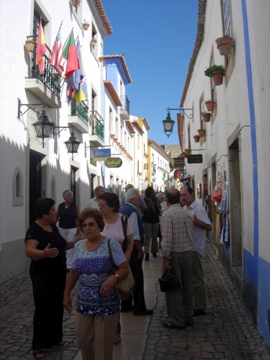The background is the same: the narrow walls of the apartment, canvases stacked against them, the dimness that gathers in the closet and the entrance to the bathroom. But it’s Angelo that looks different — tired, I think, for lack of a better word. “How’s the new job?” I ask.
“It’s cool,” he says with a shrug.
“Really?” I ask, unconvinced.
He rolls his neck and laughs. “No, it fucking sucks. It’s just like ‘move this here’ and ‘move this there’ and I don’t give a shit about expensive perfume or whatever.”
Since the last time we Skyped, Angelo lost his job at that hot-shit gallery where he spent his first full year out of university working as an art handler — drilling shit and hanging shit and packing shit, pulling late nighters and driving semis around Manhattan to do $500,000 installations in million-dollar apartments. “Living the dream,” he’d called it.
It’d been what he’d wanted, what he’d thought he’d wanted, a step in the rung of the ladder of the art world. He’d worked his ass off for it — years of interning while taking full-time classes and working catering gigs and living in his ridiculously rent-controlled Manhattan apartment. He’d been flown to Art Basel Miami, and Art Basel in fucking Basel. He’d met some of his favorite artists and he’d gone to big-deal parties and he’d make connections with gallerists and dealers from around the world.
But secretly I hadn’t been surprised when Angelo had first written saying he’d been laid off. He’d been getting sick of it. He’d said as much the last time we’d talked, when there’d been an opening and he’d worked the door to the VIP lounge. “So, you know, I get to like stand there and be The Man,” he’d laughed. “I’ve got the power, right, of who gets in, and I gotta know the right people and I gotta schmooze and be mad like that.” He’d laughed again. “But it’s also kinda whack. It’s all these people pushing around, trying to be all big and in with this person or that person, and pretending the art is way better than it is. And I’m not even in the real thick of it. I get to play The Man for a couple hours, but the rest of the time I’m just, you know, the grunt. The blue-collar end of it.”
He’d seemed characteristically positive when he’d first written with the news he’d been laid off. He was gonna be getting unemployment, had a few good job leads, was using the extra time to get this website together. Then came an on-call gig doing display installations at Saks in Midtown.
It’s been a month now and he seems worn thin: he fidgets, picks at food wrapper, pushes up his glasses, gets up to get a glass of water then sits back down.
“You alright?” I ask.
He shrugs. “Yeah, I mean, whatever. I work til like 3am and then I take a cab home to my rich-boy apartment while all the other chollos haul it an hour and a half on the subway, just to turn around and do it again. And it’s like the only kinda job I’m qualified for, other than catering which is a fake job. Like, I spent all this time in school and all ‘I’m gonna be an artist” and all I know how to do is move shit. I just feel like, you know, what the fuck is it all for?”
He looks down, picks at the empty food wrapper then balls it up and tosses it across the room.
I sigh. “Well isn’t that the question of the hour?”
It’s something I’ve been thinking a lot about — the what-is-it-all-for, the fallacy of the idea of “making it.” I’ve been in Hanoi six months now; everyone’s started asking me what I’m doing, how long I’m staying, what the plan is now that the Cambodia-book-project thing fell apart. It doesn’t help that my 30th birthday is looming on the horizon, sitting there like a big fat question mark I can’t see over or around or through.
I want to tell Angelo something now, this thing I’ve been thinking, been feeling churn-churning inside me but don’t have words for yet. “It’s a good thing,” is all I come up with.
He raises his eyebrow. “What?”
“That you got out of that world. That shit wasn’t for you.”
He looks dejected.
“Not like that,” I say, still searching for the words. I sigh in exasperation at myself. “I mean, I know it sucks. I’m no fucking role model — I’ve pretty much given up on writing anything for money. But it’s good, I think, to not get sucked into the scene of it all. To question the whole making-it thing.”
I pause. You’re too smart for that art-world bullshit, I want to say, though I don’t actually know if that’s true.
“Check it out,” I say instead. “I’ve been thinking about this whole thing a lot lately, and I’ve been trying to write this essay about it but it keeps falling apart. Which might be metaphor, I think,” I add with a laugh. “But I’ll send you the link if I can ever get it together.”
“Sweet, sweet,” Angelo says as he cracks open a soda can. It hisses and he yanks the tab off.
“Now tell me about that Sandy shit,” I say.
**
I got the essay together. Kinda. It’s not terribly uplifting. You can read it here.



















Recent Comments